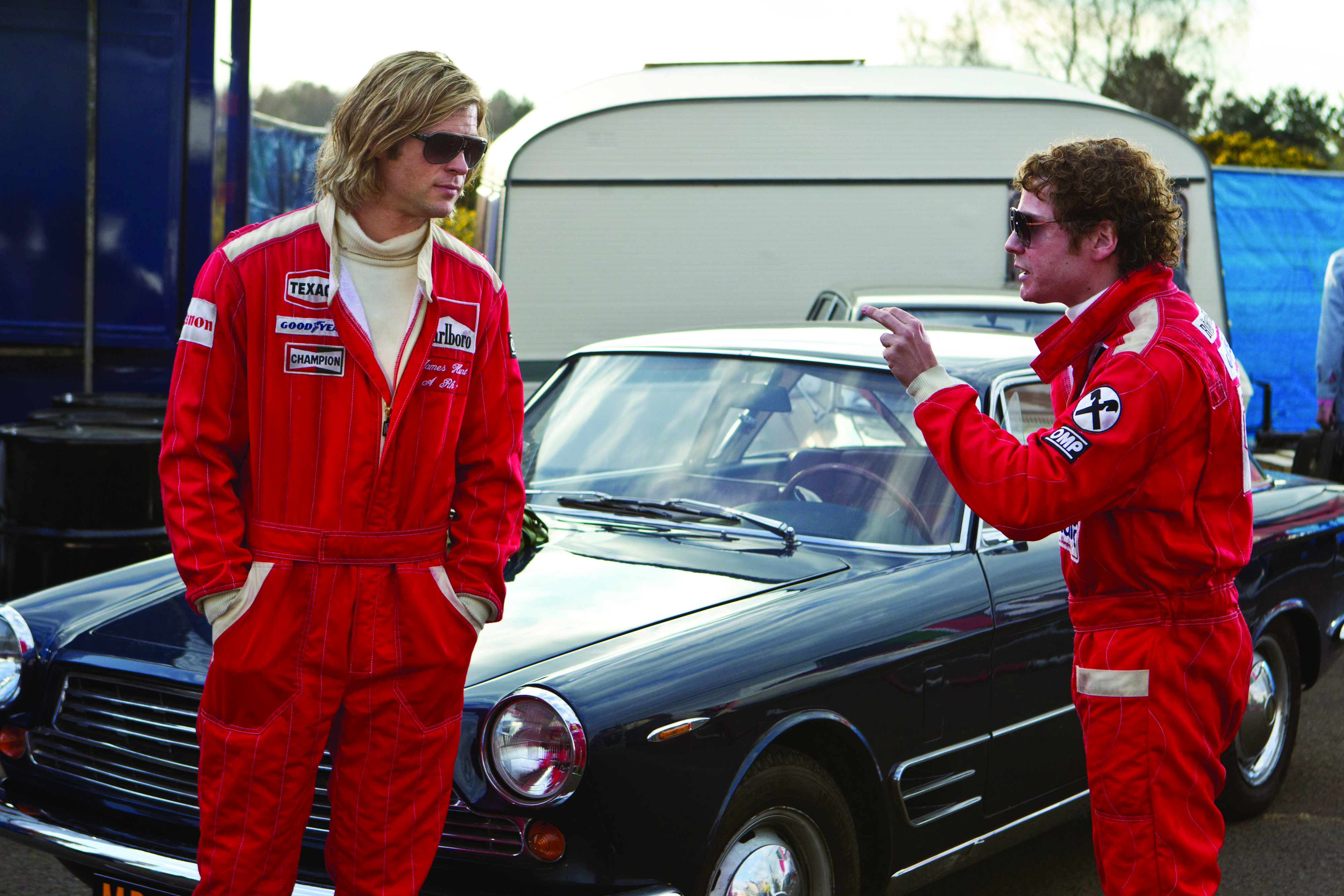Rush
Opens Fri., Sept. 27 at Guild 45th and other theaters. Rated R. 123 minutes.
Car racing means something different in Europe. Here, NASCAR is about working-class authenticity, the legacy of Southern moonshiners, popular mainly in the red states. In Europe, Formula 1 is unapologetically elitist. That’s its brand: champagne and sex, exorbitant budgets, a V-12, VIP celebration of wealth and engineering, yet carrying the cologne of sudden death. Rush is the mostly true stories of two star drivers of the ’70s: the British rogue James Hunt and the Austrian technician Niki Lauda.
Ron Howard has made and starred in some good movies about cars (Gone in 60 Seconds, American Graffiti, etc.), but here he’s a director-for-hire. Written by Peter Morgan (The Queen, Frost/Nixon, The Damned United), this is a picture firmly set in 1976 Europe. The Cold War is still on, Thatcher is a lowly back-bencher, and it’s not clear if the hedonistic ’60s have even ended. Hunt (Chris Hemsworth) is a posh, privileged, oversexed product of his times. His wealthy backers have bought him into the big leagues, and his leonine self-confidence is suddenly undercut by this reality: Given a fast-enough car, there are no more excuses if you lose. The methodical, unlovable Lauda (Daniel Bruhl) has meanwhile paid his own way onto the circuit: He makes every car faster through strict engineering discipline, not panache. He and Hunt are yin and yang, a dynamic that Morgan repeats far more often than necessary.
Howard certainly remembers the ’70s, and with cinematographer Anthony Dod Mantle (Slumdog Millionaire) he gives Rush a wonderfully Campari-soaked period look. The sun flares in Hunt’s golden hair; his girlfriend Suzy Miller (Olivia Wilde) is a model stepped from the pages of Cosmo; smoking and sex are still tolerated on planes—for first-class passengers only, of course. The racing scenes are excitingly conveyed with vintage cars, CGI, and snippets of real race footage among the many montages. Perhaps for the benefit of us Yanks, too many races are narrated by the TV commentators. For Europeans, the Hunt/Lauda rivalry needs no such explanation, and Lauda’s near-fatal accident at the German Grand Prix is part of racing lore.
Hemsworth, an Aussie from those Thor movies, isn’t a bad actor; and Bruhl, a German-Spanish utility player, is a good actor soon to co-star in the WikiLeaks movie The Fifth Estate. I only wish the writing were up to their and Howard’s talents: Hunt is made to say things like “The closer you are to death, the more alive you feel,” and after marriage, Lauda frets that “Suddenly you have something to lose.” Both may be true, but neither needs saying. Morgan’s annoyingly formulaic this-versus-that writing style doesn’t suit a movie with two heroes and no villains. Rush successfully captures the glamour and danger of its sport; only the script isn’t up to speed.
bmiller@seattleweekly.com








